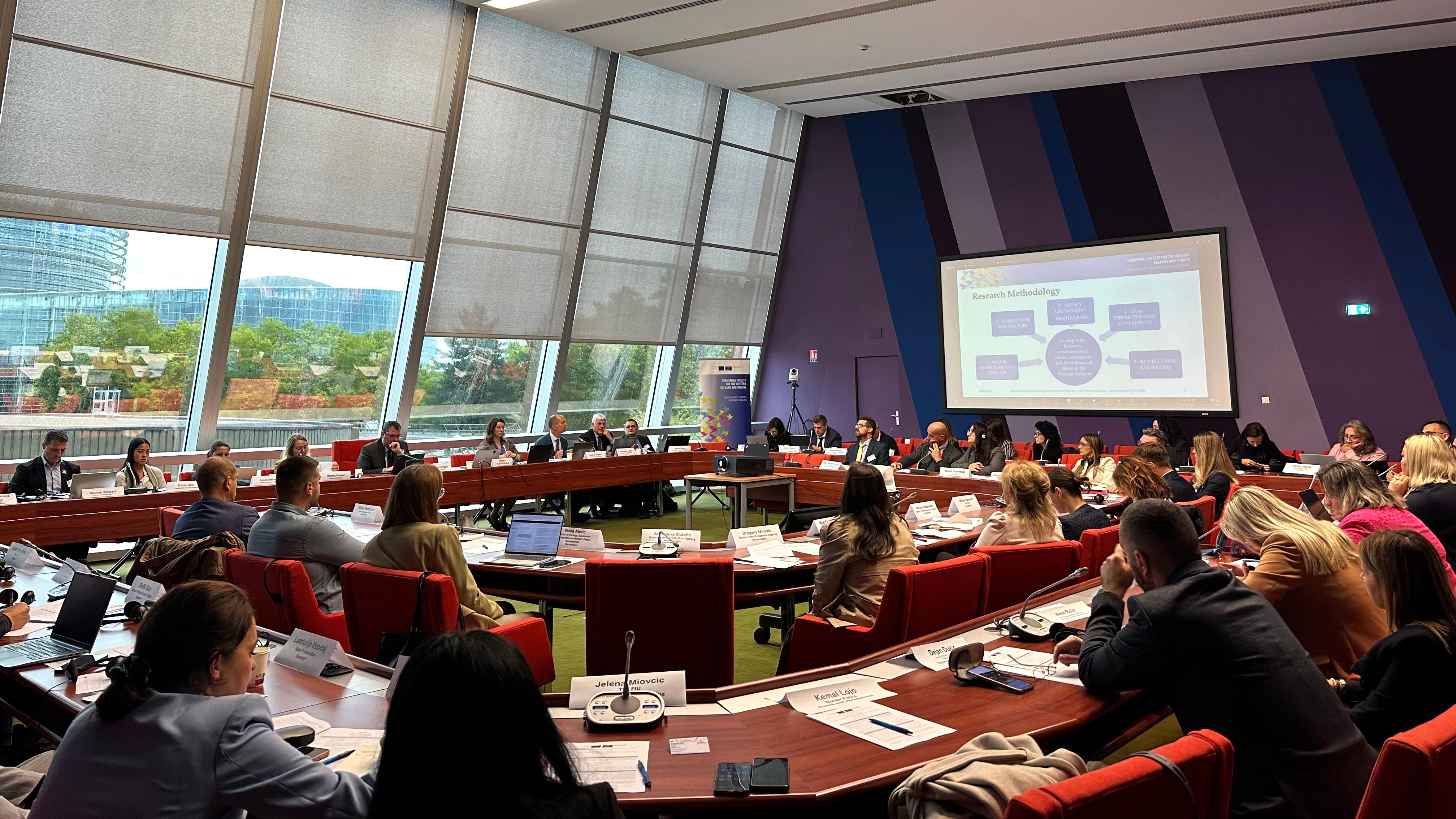Environmental crime poses a growing threat to natural resources, governance, and stability in the Western Balkans and beyond. These crimes often thrive on corruption, generating illicit profits that are laundered through cross-border schemes or professional networks. To discuss a co-ordinated approach in the fight against corruption and environmental crimes, an open discussion took place in Strasbourg about identifying vulnerable sectors, conducting effective risk assessments, and building partnerships with civil society and the private sector. These are all essential for prevention of such crimes and enforcing existing legal frameworks effectively.
Over 45 professionals from Albania, Bosnia and Herzegovina, Kosovo*, Montenegro, North Macedonia, and Serbia, including enforcement agencies, prosecutors, customs and border officials, anti-corruption and environmental authorities, and civil society representatives, participated in the two-days workshop in Strasbourg during 23-24 September to address the nexus between environmental crime, corruption, and money laundering.
The workshop presented key findings from a regional review on corruption and money laundering risks linked to environmental crime, and on the other hand explored how these risks can be incorporated into domestic or sector-specific risk assessments. Strengthening financial investigations, improving inter-agency co-operation, and engaging a broader range of stakeholders in tackling illicit financial flows linked to environmental crime, were some of the key recommendations highlighted during the discussions.
Experts from the Council of Europe, prosecutors from Italy, Croatia, and Romania, and environmental protection and enforcement units from France (CESAN) and Spain (SEPRONA) shared best practices for investigating and prosecuting such offences. EUROPOL representatives also highlighted recent initiatives, including the creation of the new taskforces targeting environmental crime, as well as case studies illustrating the sector’s vulnerability to money laundering.
This event is part of the Council of Europe’s ongoing efforts to strengthen anti-corruption and anti-money laundering responses to environmental crime in the Western Balkans. Moving forward, the EU and Council of Europe ant-corruption action will assist beneficiaries in the development of practical guidelines to prevent and disrupt money laundering linked to environmental crime.
This workshop was organised by the Action against Economic Crime in the Western Balkans within the joint programme of the European Union and the Council of Europe, "Horizontal Facility for the Western Balkans and Türkiye”. The action is supporting public actors in the region in improving their anti-corruption and anti-money laundering policy and operational responses, in line with European standards and good practices.
_______________________
*This designation is without prejudice to positions on status and is in line with UNSCR 1244 and the ICJ opinion on the Kosovo Declaration of Independence.

